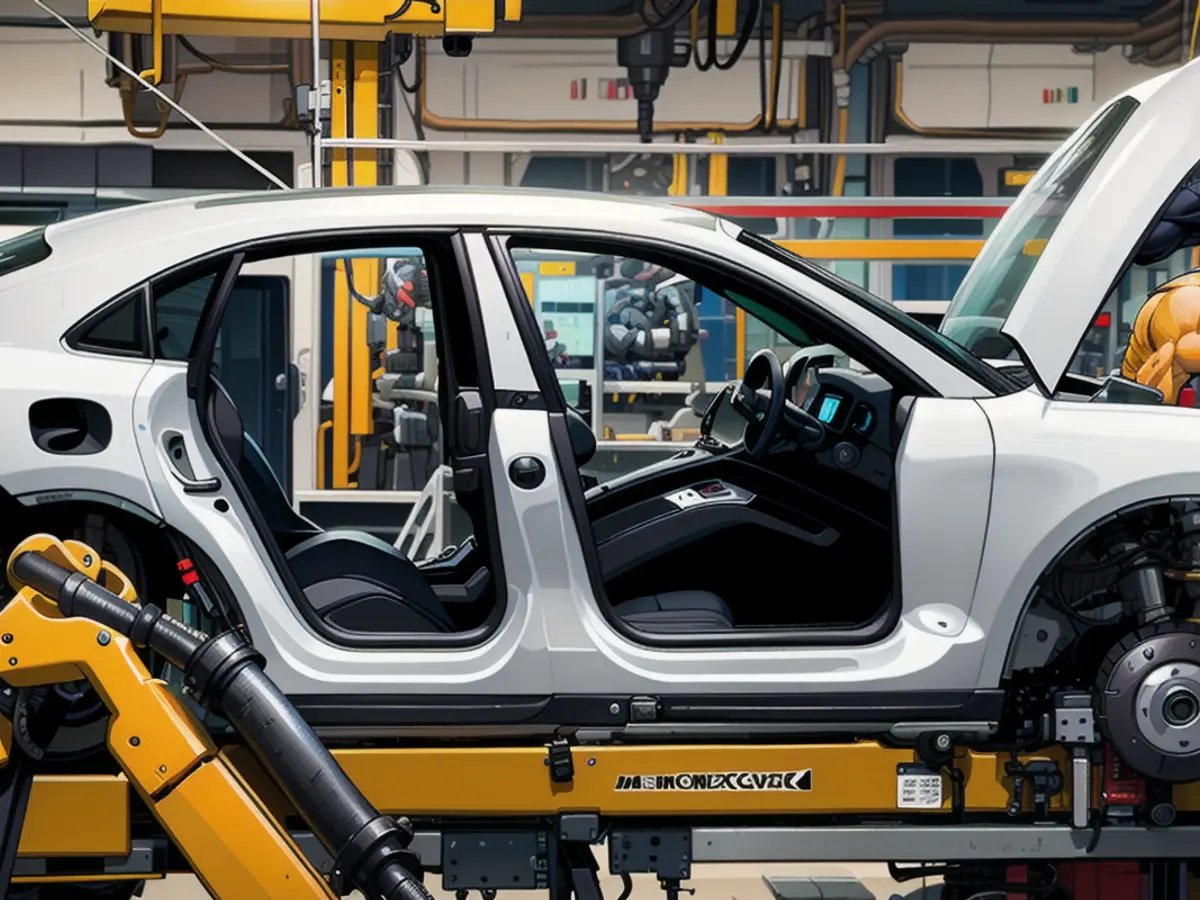The Business World - Approximately 100,000 electric cars are stored in Germany.
As per a study by automotive experts in Chemnitz, several tens of thousands of electric cars are sitting unused across Germany. In the previous year, a record-breaking number of unsold vehicles were reported, according to automotive researcher Werner Olle. He estimates the surplus to be around 100,000. These electric cars have failed to make their way to customers and are instead found parked in factory lots, dealerships, and ports. This situation applies to both domestically-manufactured vehicles and imported ones. The cause of this issue is the abrupt halt in electric car subsidies, resulting in a drop in domestic demand.
In May, the Federal Statistical Office revealed that the export of electric cars had significantly increased in the preceding year. A total of 786,000 electric vehicles worth 36 billion euros were exported, which is a 58% rise. Out of every fourth car exported from Germany, one had a pure electric drive.
"The export solution cannot mend all the injuries," cautioned Olle. Idle production is costly and can only be alleviated through discounts. The stats indicate a disconnection between production and domestic demand. This same trend is also observed in Saxony. There, around one-fourth of the electric cars made in Germany originated in 2023. However, only 2.6% of all cars registered in the Free State were electric or hybrid. There exist prominent disparities between eastern and western Germany. "A key element is income."
The Chemnitz Automotive Institute (CATI) had projected a growth in Saxony with the presence of manufacturers such as Volkswagen, BMW, and Porsche. The production of automobiles is predicted to rise by 10 percent to 620,000 vehicles, with 320,000 of them being completely electric vehicles. The anticipated increase in electric cars primarily stems from fresh models from BMW and Porsche in Leipzig. On the other hand, Volkswagen is encountering sales issues at its electric car factory in Zwickau.
Read also:
- Despite the increasing exports of electric cars from Germany, the domestic Industry in Chemnitz is struggling with a surplus of about 100,000 unsold electric vehicles.
- The Previous year saw a record-breaking number of unsold vehicles in Germany, with electric cars making up a significant portion of this stockpile.
- Detailed studies by automotive researcher Werner Olle indicate that the halt in electric car subsidies led to a drop in domestic demand, causing a rise in the number of electric cars stored in factories, dealerships, and ports.
- In Saxony, which is home to major car manufacturers like Volkswagen, BMW, and Porsche, over one-fourth of the electric cars produced ultimately fail to find buyers, resulting in a disparity between production and domestic demand.
- Despite the Chemnitz Automotive Institute's positive predictions of a growth in electric car production in Saxony due to new models, Volkswagen is facing sales challenges at its electric car factory in Zwickau, underscoring the complex challenges in the German automotive Industry.








